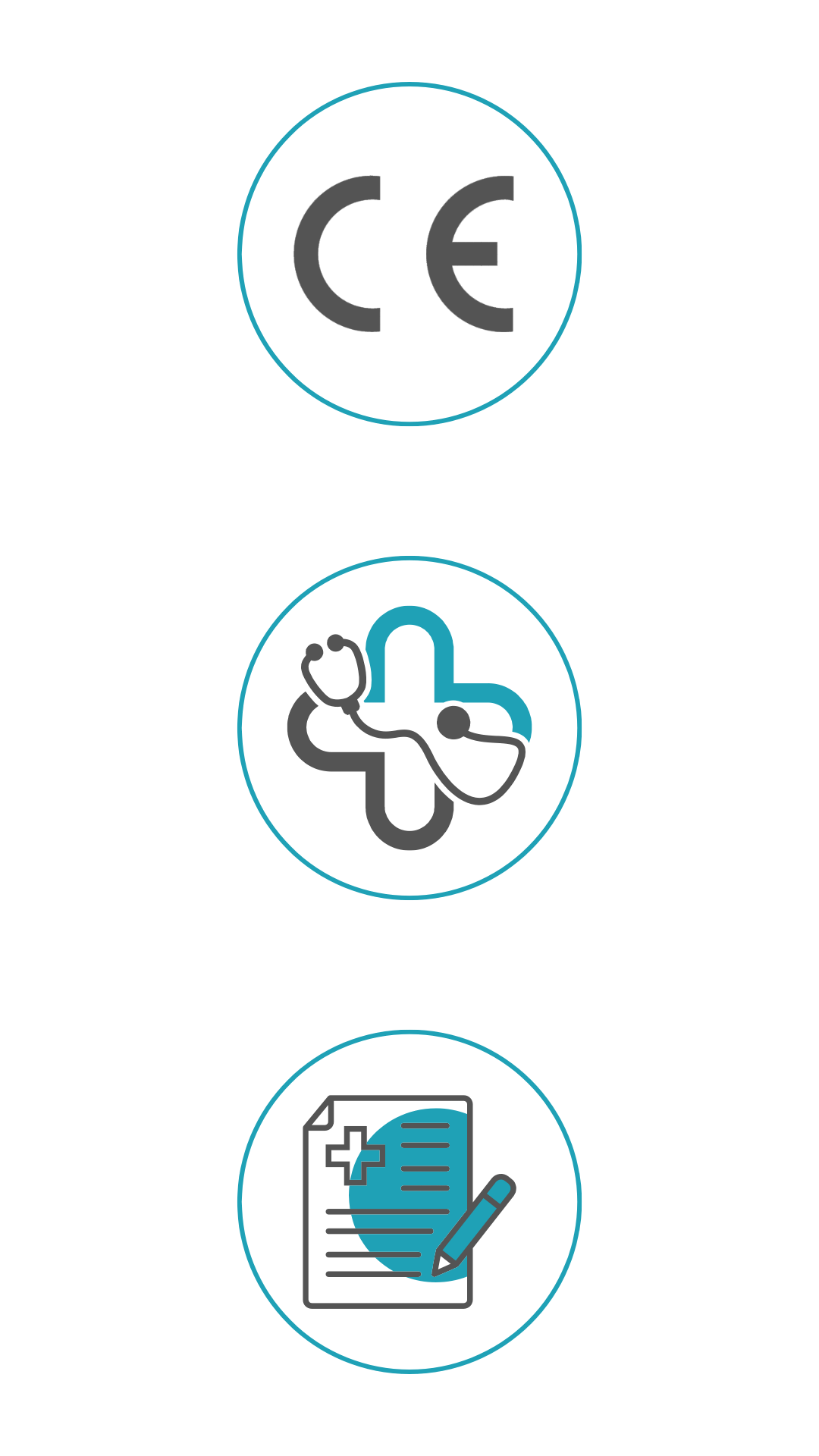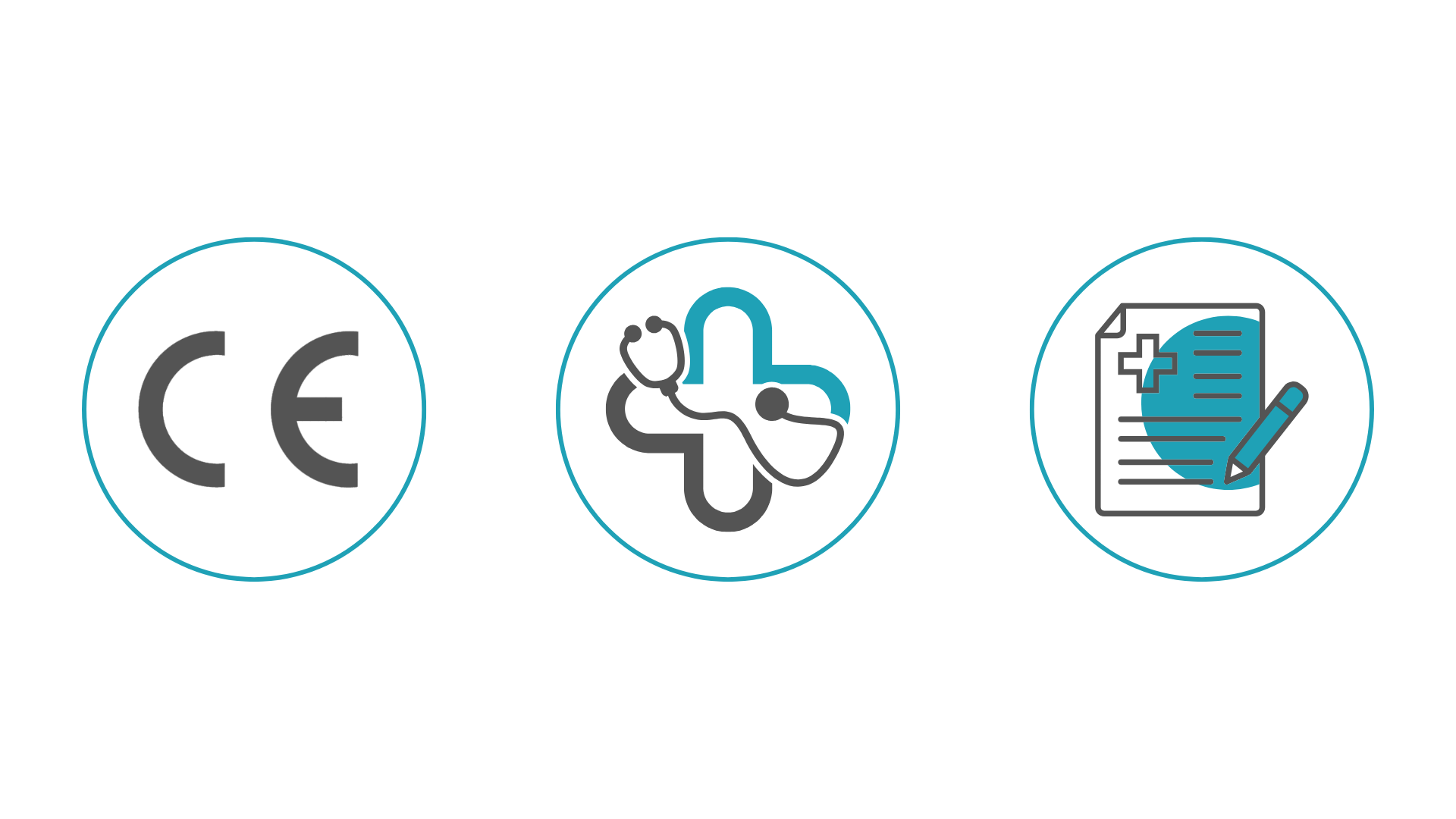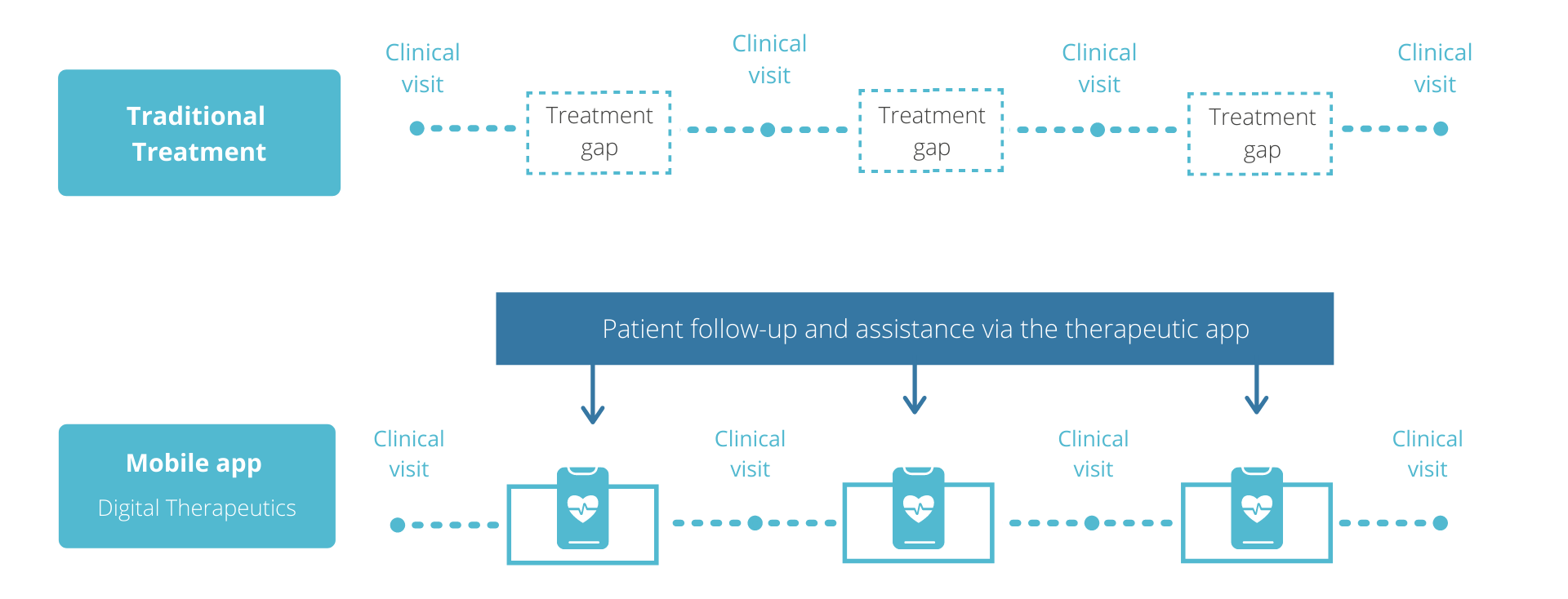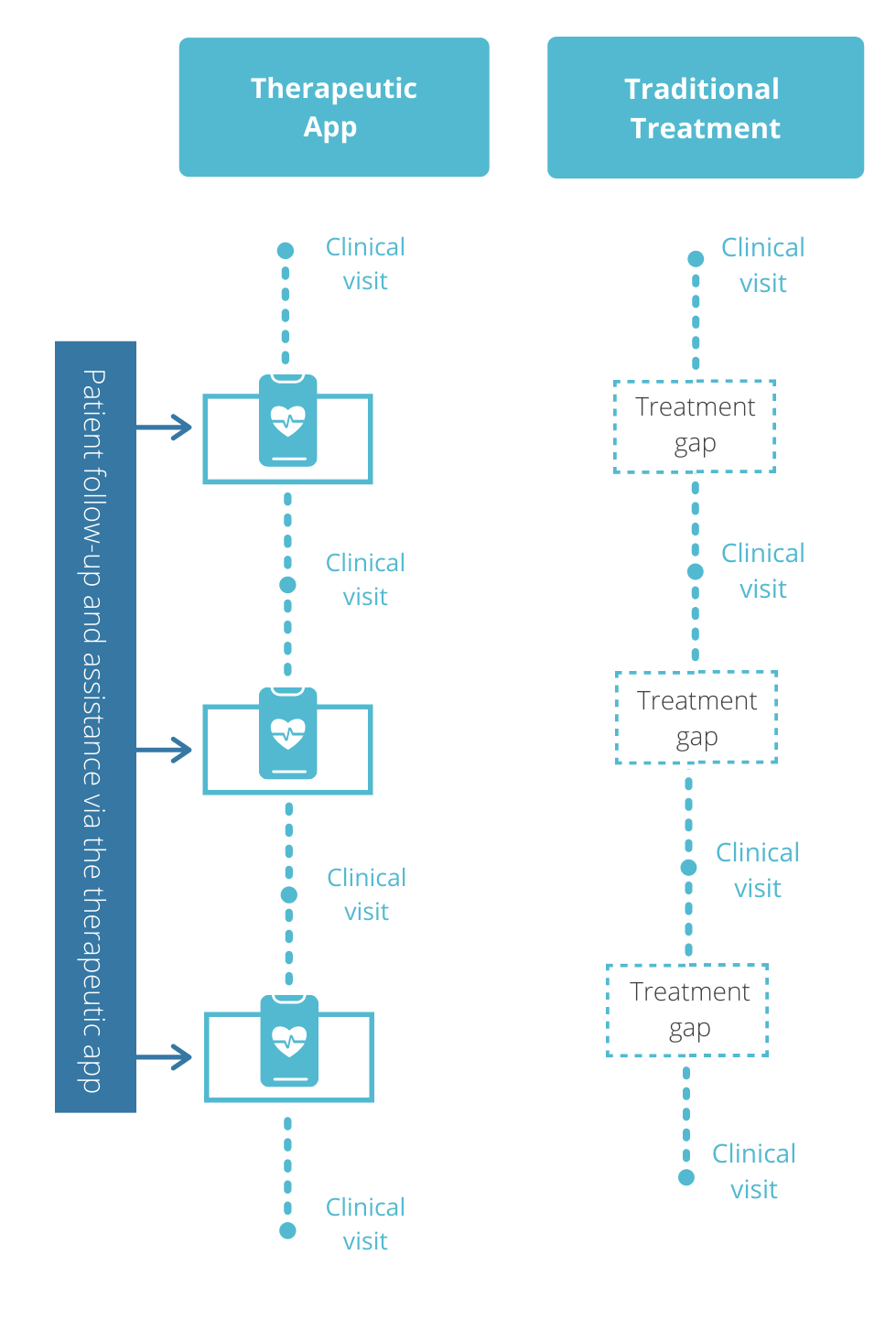
Do you know what digital therapeutics are?
A digital therapeutic, or DTx, is a digital medical device designed to treat a condition or its symptoms. As defined in the Social Security Code, the primary intended action in or on the human body is not achieved through pharmacological or immunological means, nor through metabolism.
This action is generally achieved through cognitive-behavioral modifications enabled by digital tools.
These digital solutions, aimed at delivering proven therapeutic benefits, are based on scientifically validated data in the context of treating a medical condition.
Be careful not to confuse digital therapeutics with wellness apps
Unlike wellness applications, digital therapeutics are based on rigorous scientific validation. They are subject to robust clinical studies, including randomized clinical trials (RCTs), which ensure their therapeutic effectiveness.
Recognizable by their CE marking as medical devices, they are prescribed by healthcare professionals and may be reimbursed by national health insurance (through the PECAN program) or by private insurers.
Benefits of digital therapeutics

For healthcare professionals
Digital therapeutics facilitate the application of lifestyle and behavioral guidelines while ensuring continuity of care between consultations.
Integration of digital therapeutics in tobacco use disorder
Smoking cessation supported by a digital therapeutic provides a personalized approach tailored to each patient’s individual needs, taking into account motivation to quit, environment, preferences, as well as the presence and severity of comorbidities.
These digital interventions offer several advantages over in-person approaches, such as increased accessibility, reduced costs, and customizable features.
They are particularly beneficial for supporting populations in rural areas or patients interested in non-pharmacological treatments, such as psychotherapy, which often rely on cognitive and behavioral strategies.
Digital therapeutics inspired by cognitive-behavioral therapy represent an innovative solution for improving access to clinical care for patients suffering from tobacco use disorder.
Thanks to our team’s multidisciplinary expertise, we aim to improve addiction care through our therapeutic application, opening new perspectives for patient support during abstinence periods.
These tools allow patients to remotely benefit from support programs similar to those offered in consultations, while ensuring continuous monitoring and real-time evaluation of progress.
A concrete response to the challenges of implementing clinical guidelines
It is important to note that, for most conditions, lifestyle and/or cognitive-behavioral interventions are considered first-line treatments, as recommended by the French National Health Authority (HAS) and scientific societies.
Although their effectiveness is widely demonstrated, implementation often remains complex in practice, representing a major barrier for both patients and healthcare professionals.
In this context, digital therapeutics appear to be a relevant solution, significantly extending effective therapeutic support time—estimated at around 7 hours over 3 months at a rate of 5 minutes per day—while also facilitating adherence to clinical recommendations.

Patient use of digital therapeutics
What is the adherence level to digital therapeutics?
Adherence to digital therapeutics seems to be higher than to medication, thanks to features they offer (personalized content, therapeutic education, reminders, etc.). Data from Germany also show that patients adhere more easily when informed about DTx by their healthcare provider.

For insurers
Digital therapeutics facilitate prevention, therapeutic education, and provide treatment options in underserved medical areas.
According to data from the French National Health Insurance and from Santé publique France.
Annual cost of tobacco-related diseases.
Spending is mainly linked to:
Including indirect costs (loss of productivity, sick leave, disability, premature deaths), the total societal cost exceeds €100 billion per year (Santé publique France, 2015–2019).
Reducing the risk of relapse will be possible through our therapeutic application
Our software, enhanced with machine learning, can detect relapse risks early and provide a personalized digital therapeutic adapted to the patient’s needs.
As a result, our solution will help reduce healthcare costs in addiction care by lowering relapse rates and associated comorbidities.
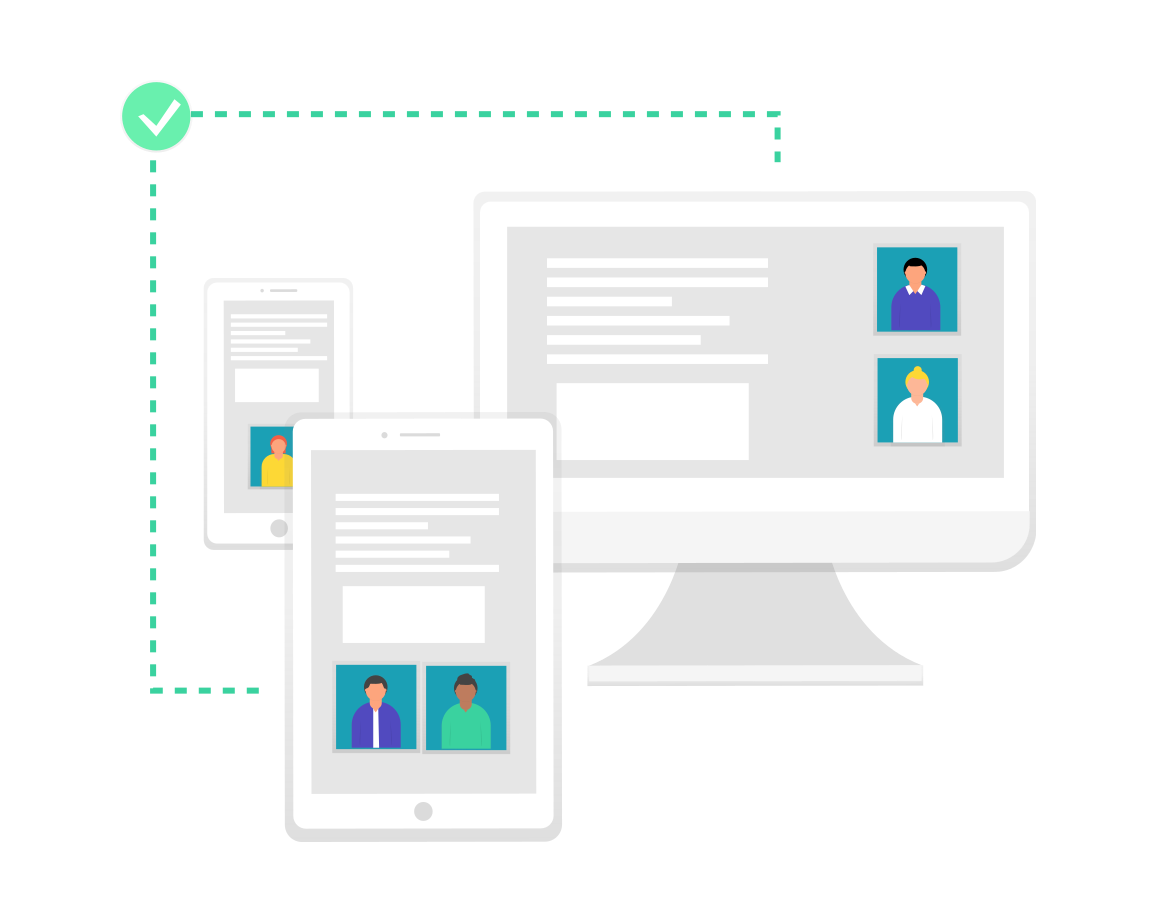
Publications scientifiques des thérapies numériques en tabacologie
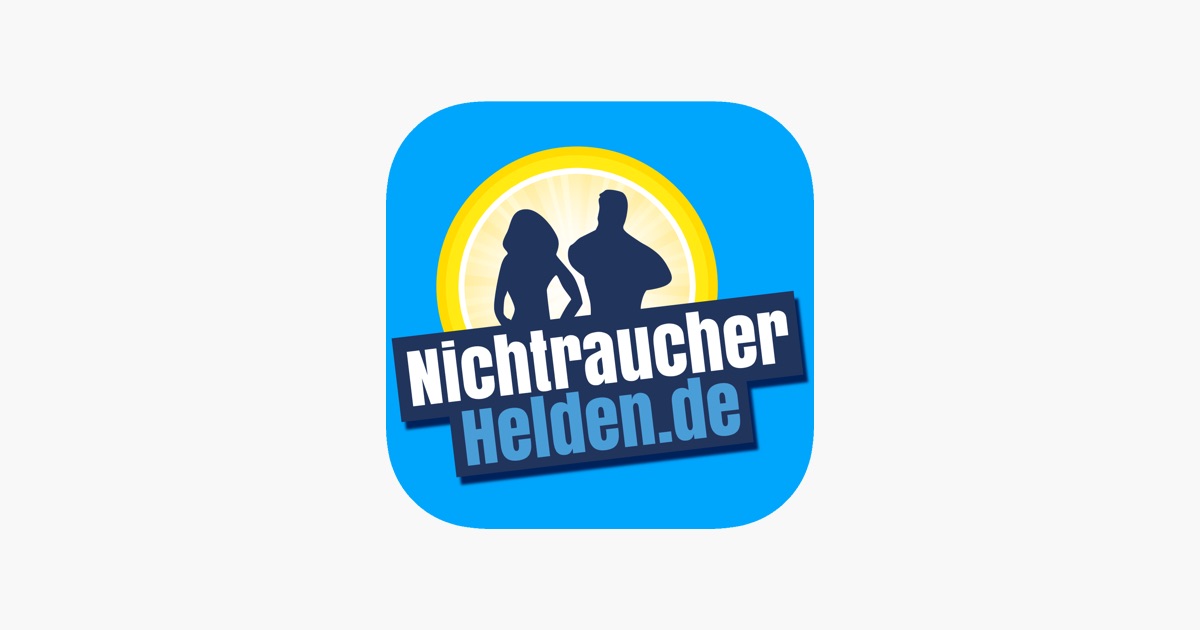
Sevrage tabagique numérique grâce à une application complète basée sur des recommandations — Résultats d’un essai randomisé multicentrique national en Allemagne
Efficacité à long terme d’une intervention de thérapie cognitivo-comportementale numérique assistée par un clinicien pour le sevrage tabagique — résultats secondaires d’un essai contrôlé randomisé
Résultats préliminaires d’une intervention thérapeutique numérique pour le sevrage tabagique chez les fumeurs adultes — essai contrôlé randomisé
Une solution de santé mobile complémentaire au sevrage tabagique assisté par psychopharmacologie — essai contrôlé randomisé


